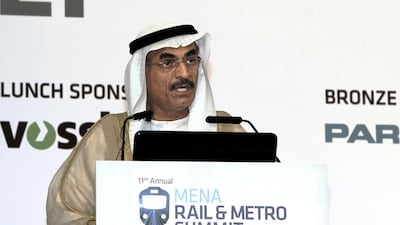Dubai is set to introduce legislation next month that could draw more private investment into infrastructure projects including the extension of the city’s Metro.
The law covering public-private partnerships is due to be introduced on November 19, and will allow the emirate to tap private sector funding for key projects such as the expansion of Al Maktoum International Airport and the extension to the Dubai Metro Red Line from Nakhel Harbour and Towers to the Expo 2020 site.
Beyond the utilities sector, the adoption of public-private partnerships has faltered throughout the region, where traditional forms of procurement have been favoured.
However, as regional economies face increasing budgetary pressures resulting from the weaker price of oil, public sector clients are increasingly turning to private finance to help pay for projects.
The consortia bidding to build the extension to the Dubai Metro Red Line will be able to use public-private partnership (PPP) models as part of their bids, according to Dubai Roads & Transport Authority’s chief engineer for rail operations, Shahrin bin Abdol Salam.
Tenders for the project, which have already been issued, are due to be handed back to the RTA in December, weeks after the new law covering public-private partnerships is introduced in Dubai on November 19. Contracts are expected to be awarded in January, said Mr Salam, who was speaking at the Meed Mena Rail & Metro Summit yesterday.
Mr Salam said the formation of a public-private partnership as part of a consortium was “not mandatory” for bidders, but was an option.
“If that’s what they want to put in to their bid, they are free to do so,” he said.
The new Dubai law will remove the need for project-specific legislation for entities and for the government to act as guarantor for projects, as has been the case with the limited private finance rules that currently cover the power and water sector.
It will allow any government entity to use PPPs to develop infrastructure so long as they meet certain conditions.
For instance, all projects worth more than Dh200 million will need to form a special purpose vehicle (SPV) overseen by a committee containing a project CEO and a representative from the Department of Finance, although projects over Dh500m will still need the approval of the Supreme Committee.
However, supplementary regulations are also needed to determine whether SPVs can be based in free zones and offer foreign investors stakes of more than 49 per cent.
The first project to use PPP funding will be the new Union Square station plaza containing a number of towers that are set to be built above the existing Dubai Metro station.
Speaking on the sidelines of Meed’s Mena Metro and Rail Conference, Abdullah Al Nuaimi, the UAE’s Minister of Public Works, said the private sector “would like to see the ground is strong” before providing the funding that will drive infrastructure projects.
“The strength of the ground is actually nothing but the legislation and the regulations. And what we have today is a good starting point.”
He added that the UAE has already “seen some good projects that made sense to the overall economy” that could benefit from private sector funding.
“The government looks [at] PPPs as a great initiative to tie up the private sector and the government.”
Trevor Butcher, the head of Middle East finance and projects at DLA Piper, said the new PPP law is “an overwhelmingly positive step forward for the future for the development of a PPP market in Dubai.
“It gives government entities the freedom to define appropriate tender processes outside of the constraints of existing tender laws that simply don’t work for PPPs,” he said.
The introduction of a new PPP law in Dubai follows on from the implementation of similar regulations in Kuwait and Bahrain.
mfahy@thenational.ae
Follow The National's Business section on Twitter


